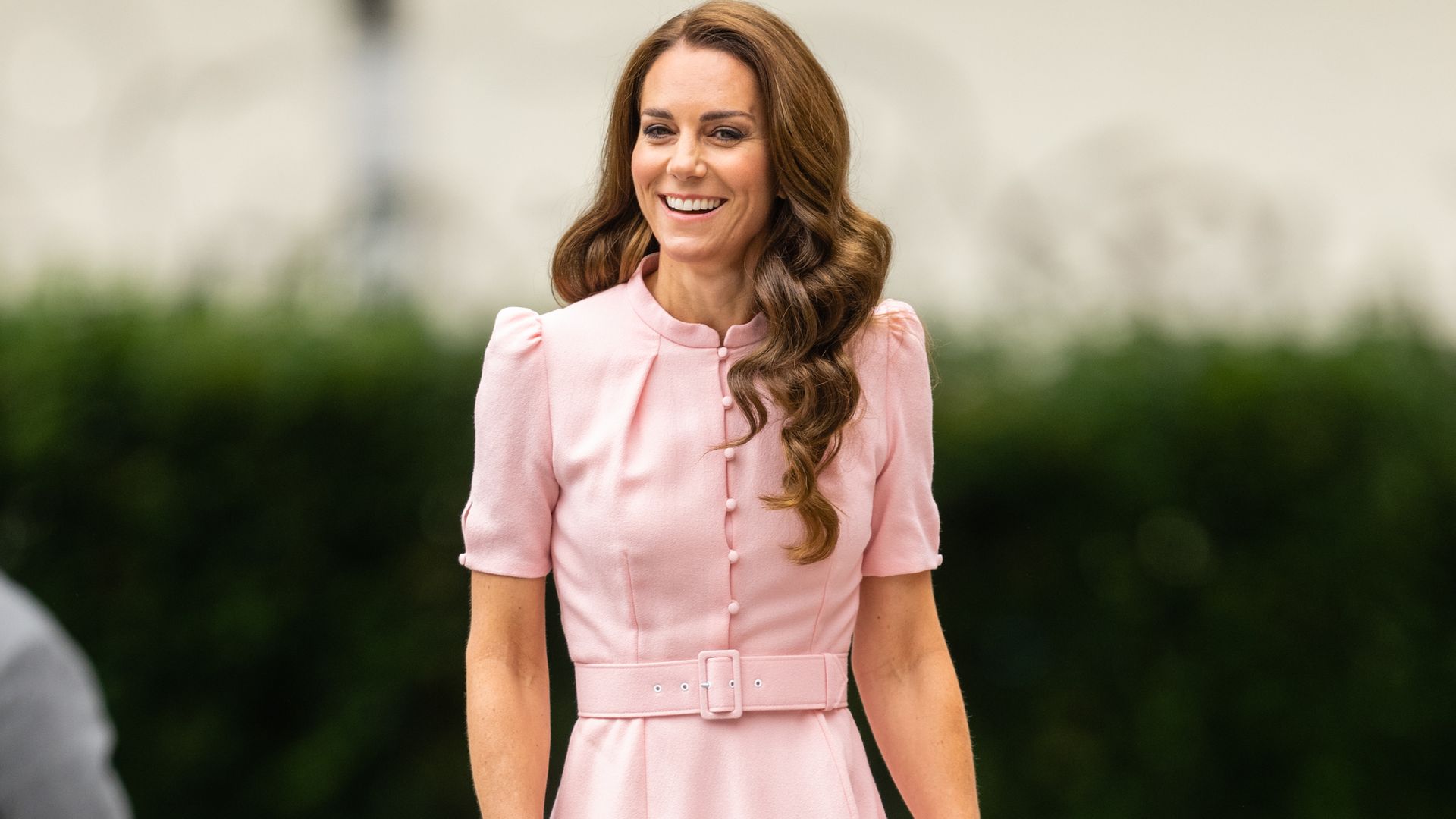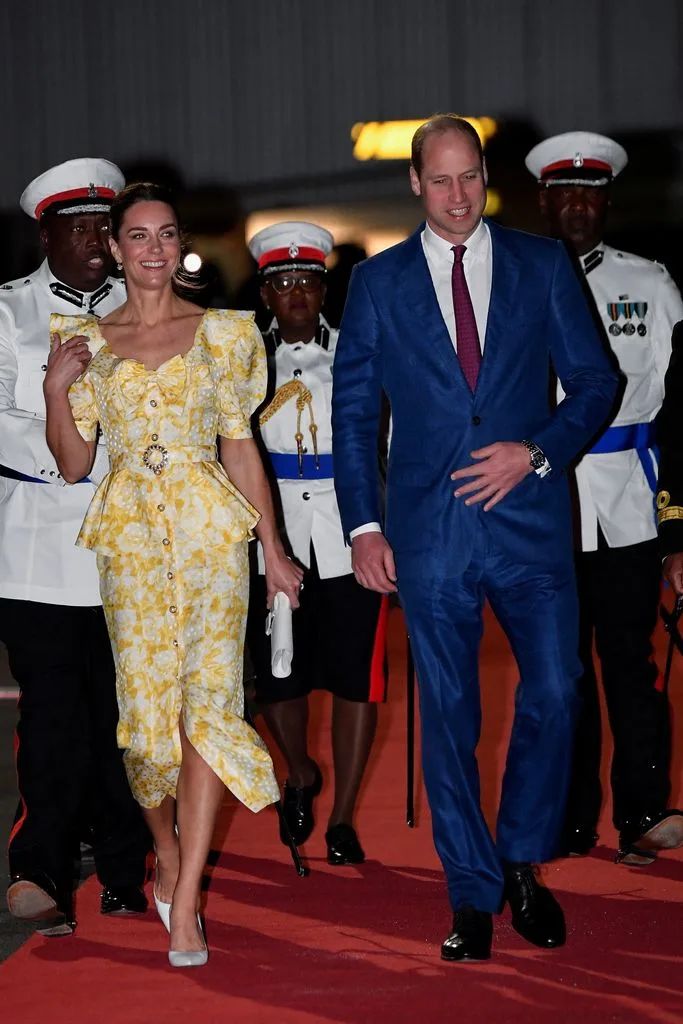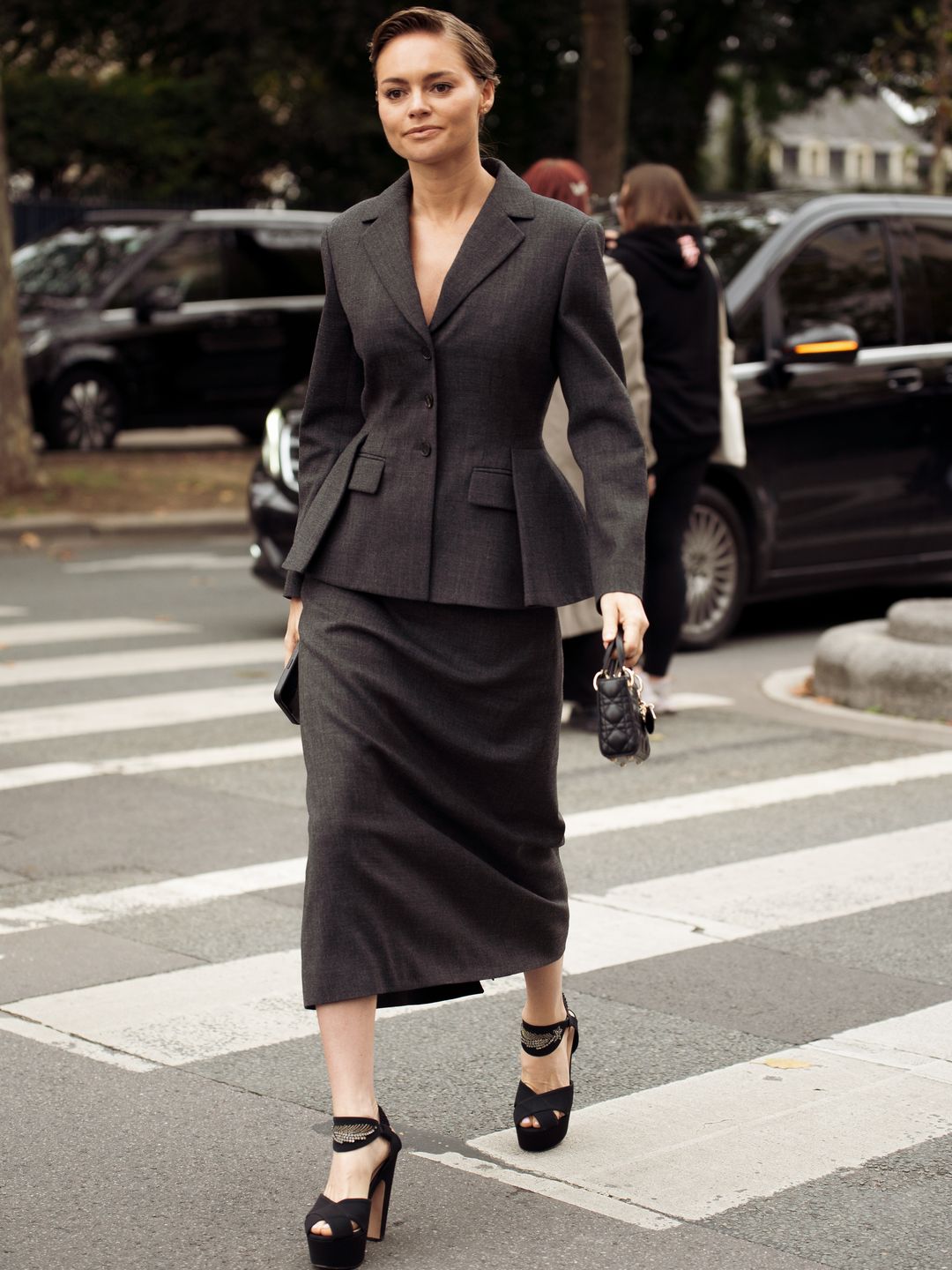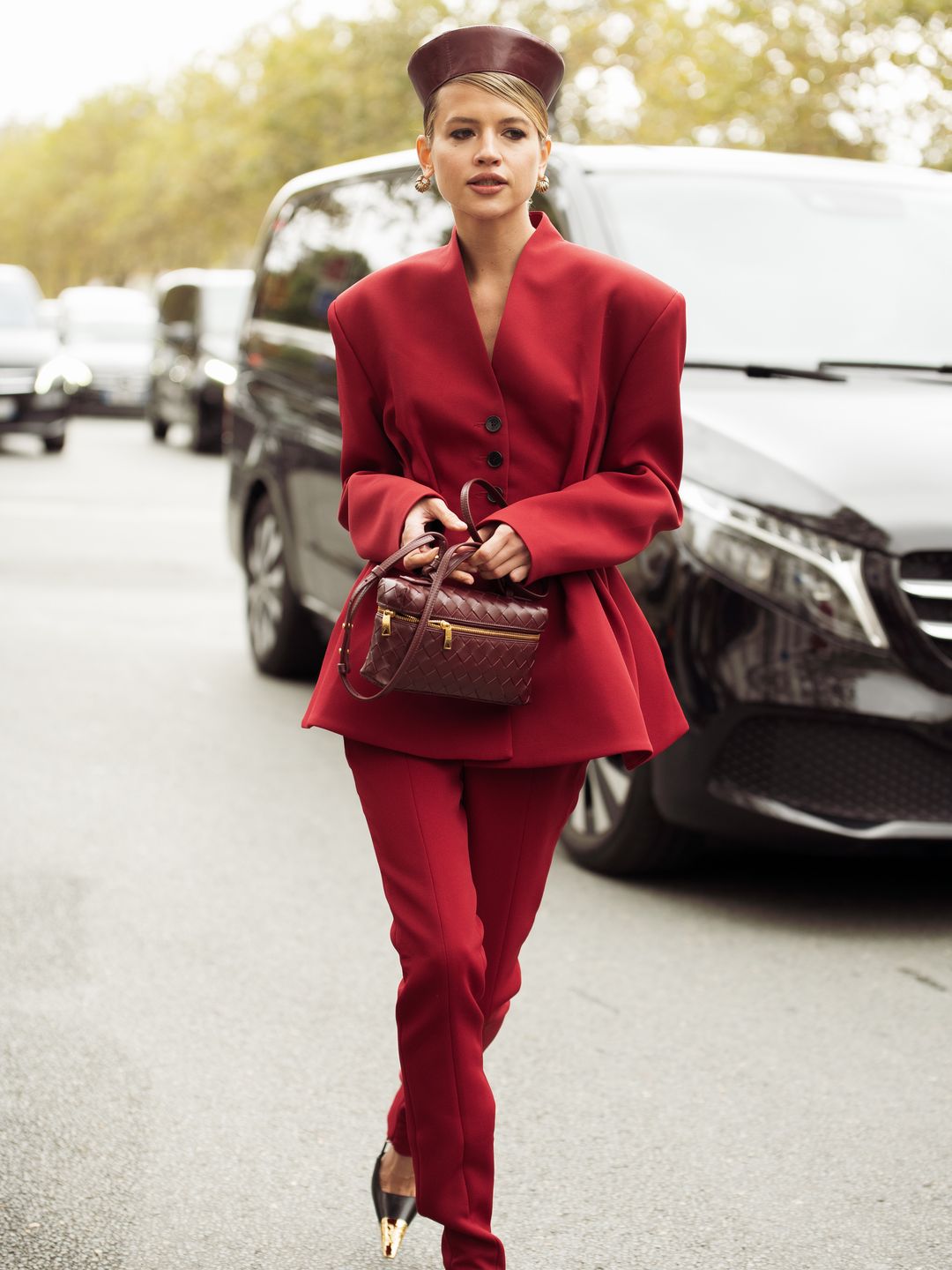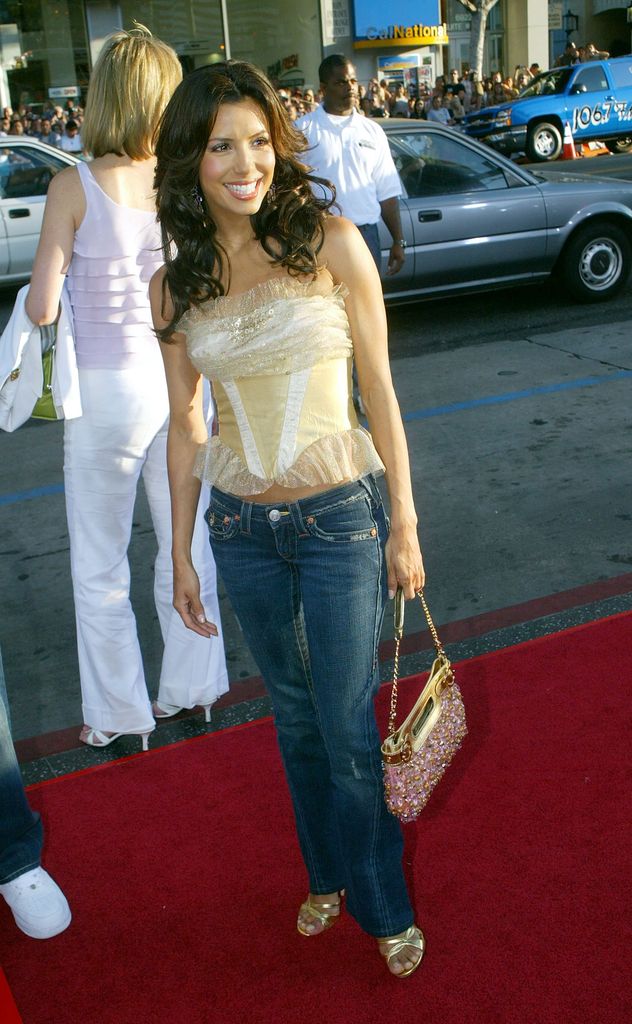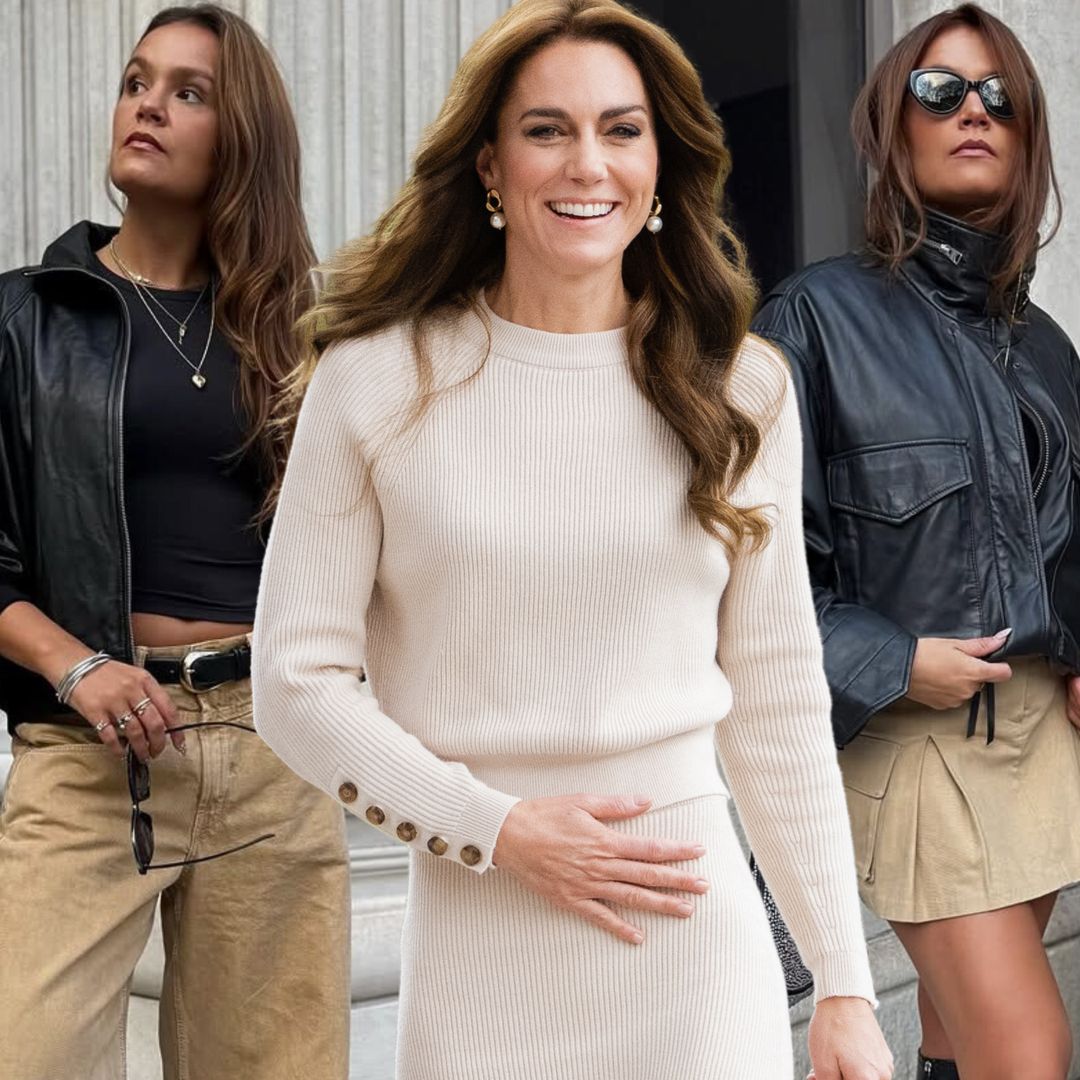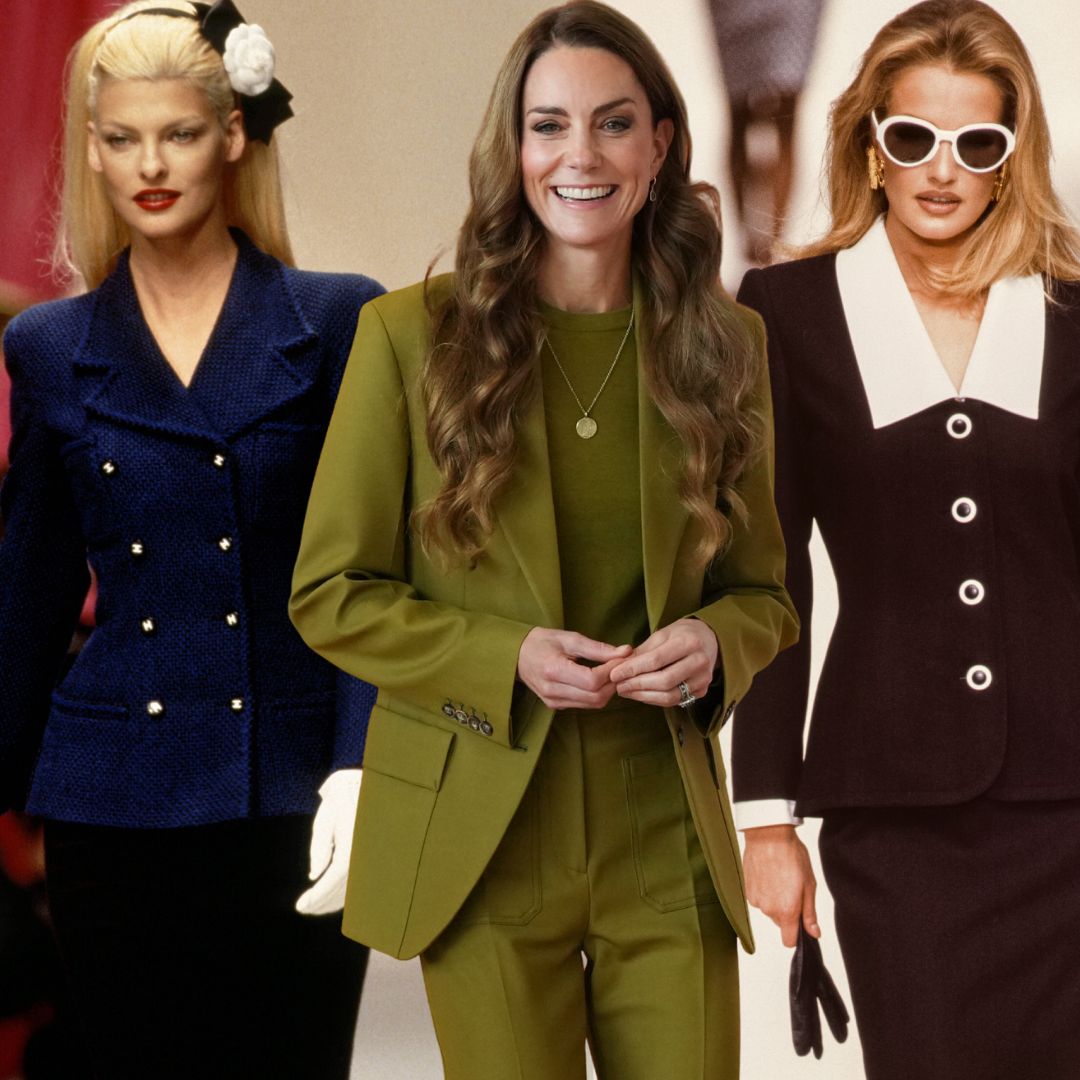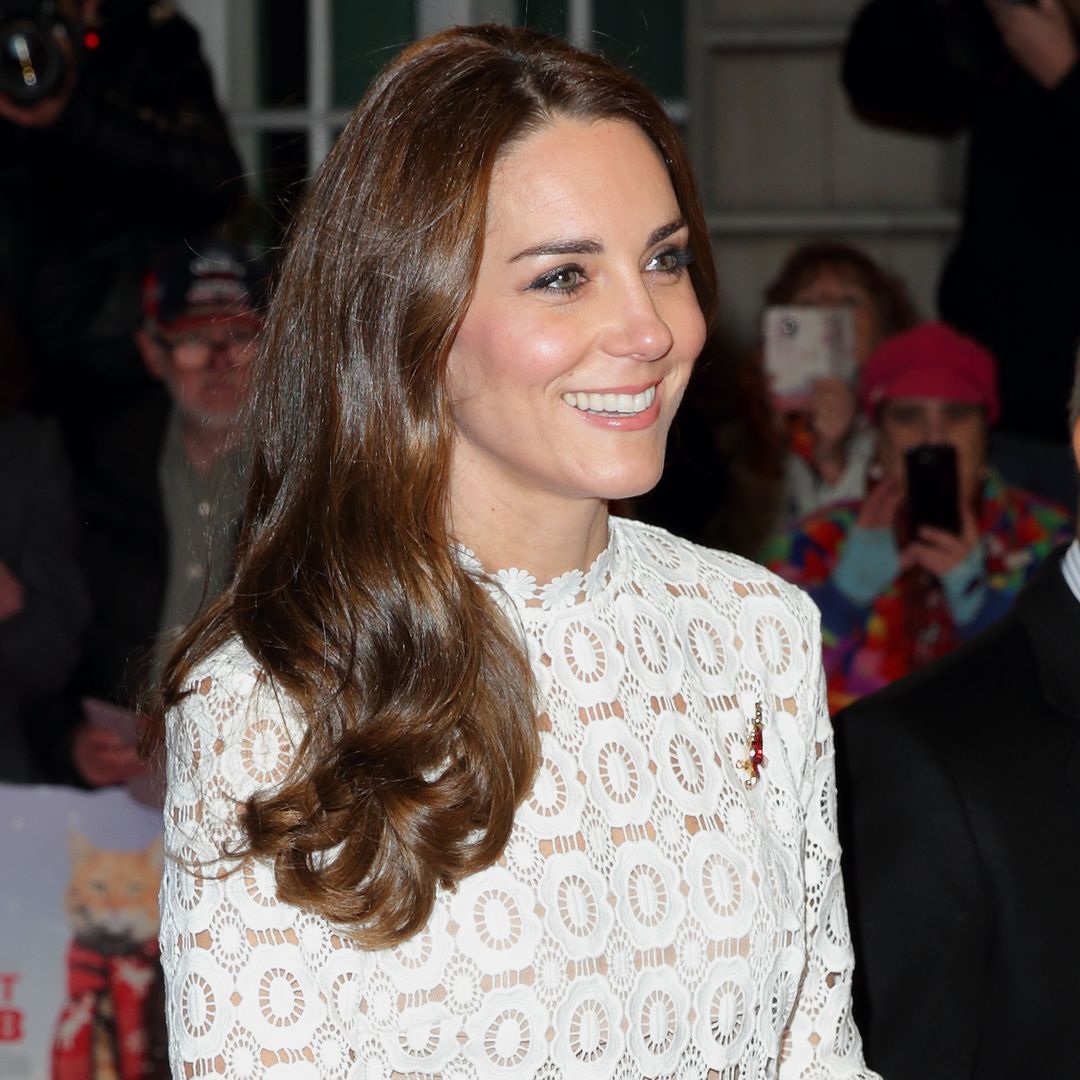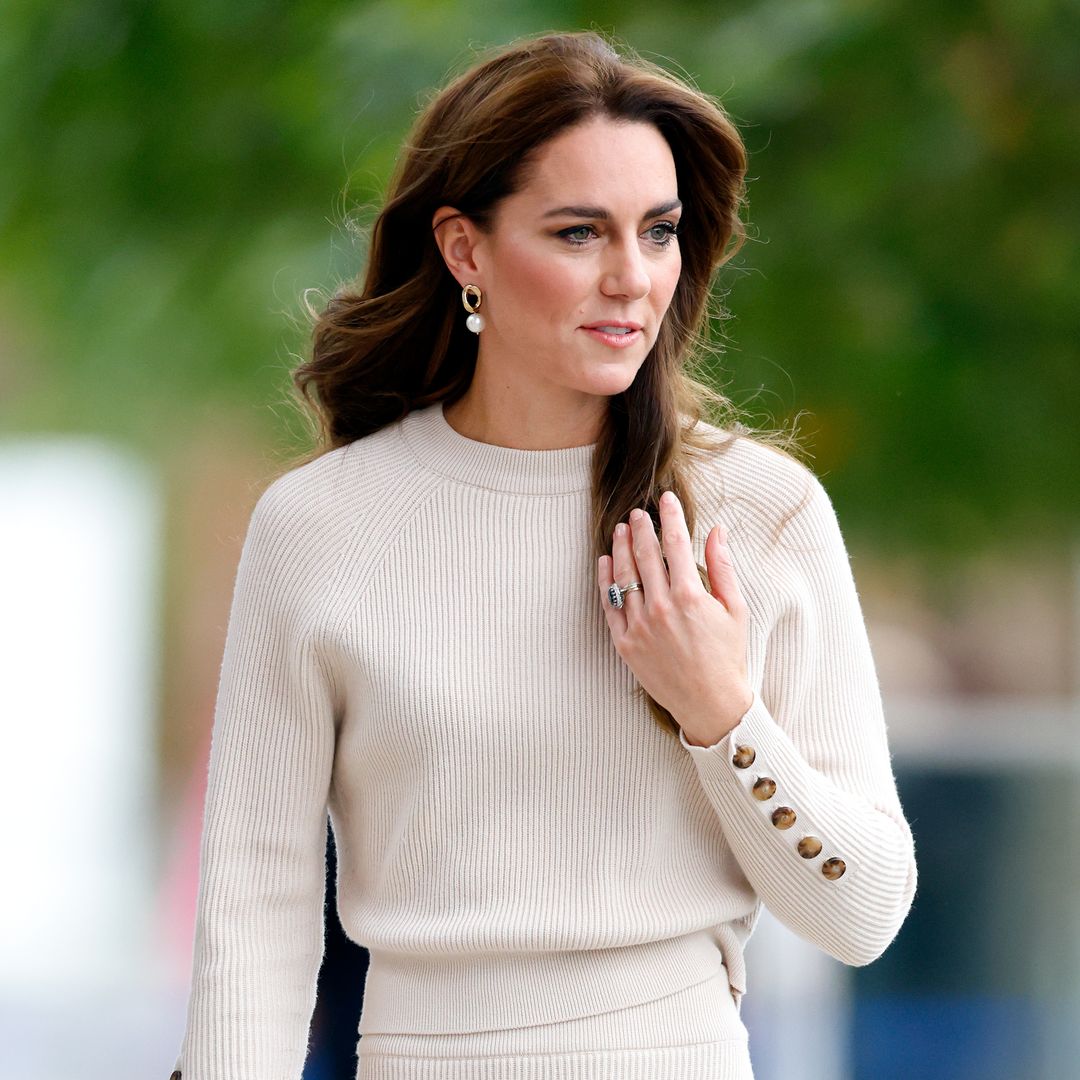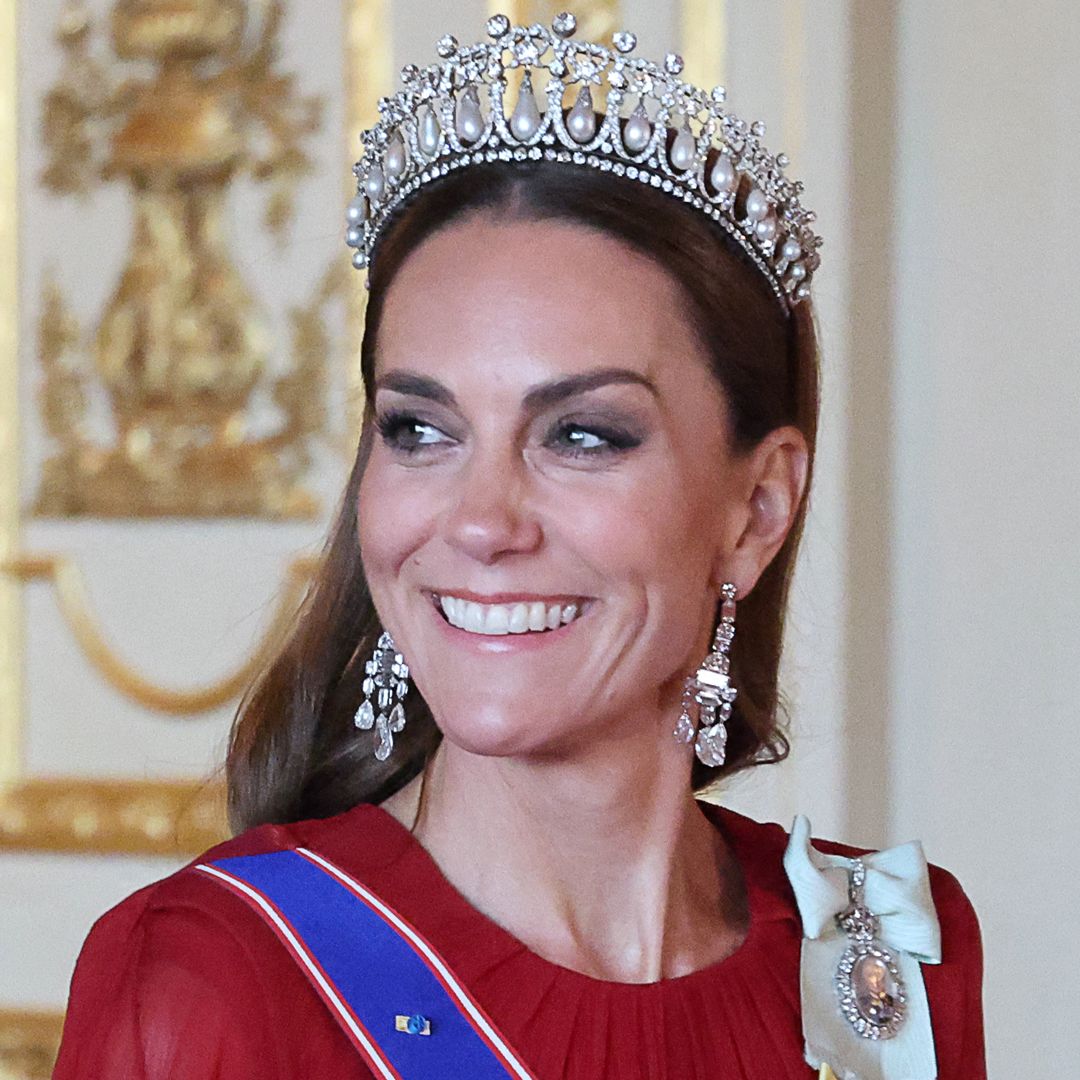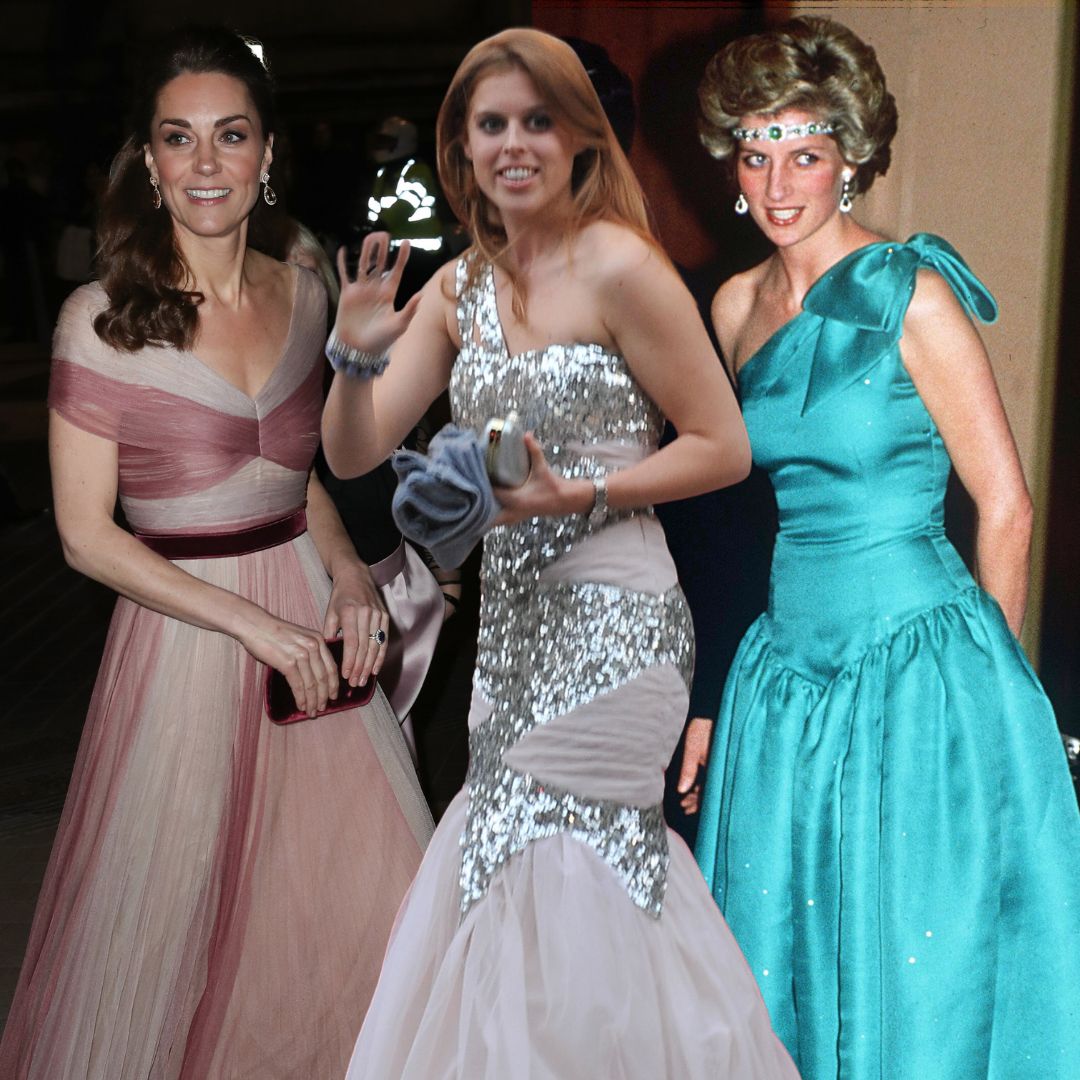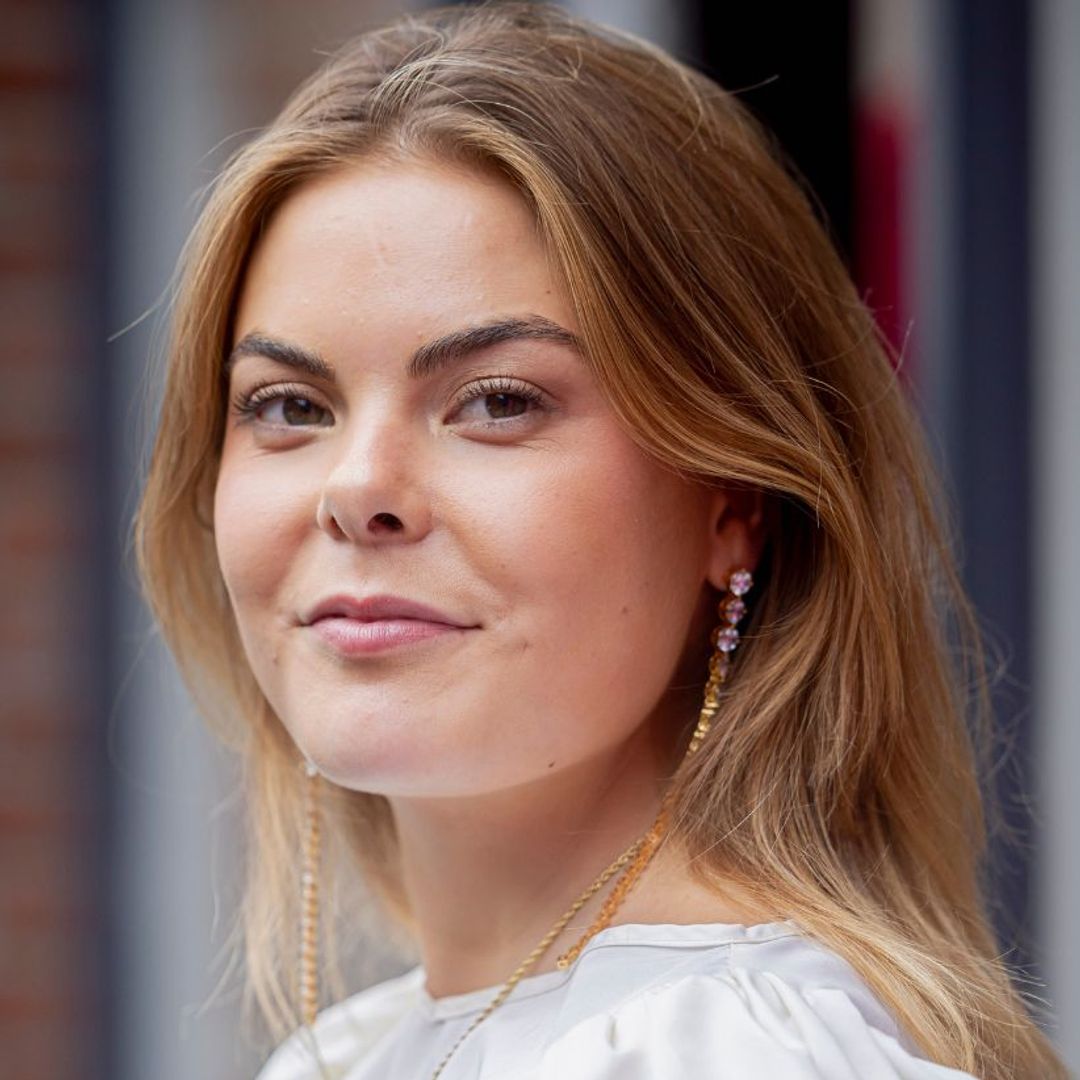The Princess of Wales’ style is defined by modest silhouettes, polished detailing and vibrant colourways - meaning that divisive trends are often left out of her year-round wardrobe.
However, that doesn't mean that the royal has never fallen prey to Noughties nostalgia. Much like the majority of British millennials, who lived through the decade of Angus, Thongs and Perfect Snogging and Topshop’s Freedom collection, the mother-of-three couldn’t resist a throwback silhouette. Her Aughts choice materialised back in 2002, during the royal tour of the Caribbean.
During the Prince and Princess’ royal tour of Belize, Jamaica And The Bahamas, Kate brought an extra dousing of summer sun to the Caribbean in a romantic yellow dress featuring a peplum waist and elegant pearl-encrusted button detailing.
The sunny piece hailed from her go-to designer Alessandra Rich, and further featured voluminous puff sleeves, a gold-cream jacquard print, a gilded finish, a shin-skimming pencil silhouette, frontal bow detailing and a belted waistband that sculptured the figure.
The royal completed her radiant attire with a pair of white pumps, while wearing her hair swept back in a sophisticated yet practical ponytail. She opted for a natural beauty blend, allowing her flawless skin to soak up a hefty dose of Vitamin C courtesy of the Caribbean climate.
Alongside skinny jeans and blue eyeshadow, peplum skirts are a true 2000s relic. The design refers to a short, flared fabric attached at the waist of a garment, creating a layered, feminine silhouette.
Its origins trace back to ancient Greece, where the term ‘peplos’ described a belted garment with a draped, skirt-like portion. Peplums re-emerged in fashion during the 19th century and became particularly popular in the 1940s, accentuating the hourglass figure with structured, tailored designs.
Several prominent designers have embraced the peplum over the years, incorporating it into their collections. In the 1940s, Christian Dior's New Look revolutionised fashion with structured peplums that emphasised the waist, creating a feminine hourglass silhouette. Cristóbal Balenciaga used peplum details in the 1950s and 1960s, adding elegance and architectural shape to his designs. Alexander McQueen modernised the peplum in his dramatic, avant-garde designs during the 2000s.
The style made a major comeback in the 1980s and again in the 2010s, featured in dresses, tops, and jackets. Today, peplums exist between the realm of cheugy and operatic, leaving the silhouette up for interpretation by fashion lovers across the globe.
As the design has Kate’s seal of approval, we’re pretty sure we know where we stand on the playful piece. Add to bag with immediate effect.
